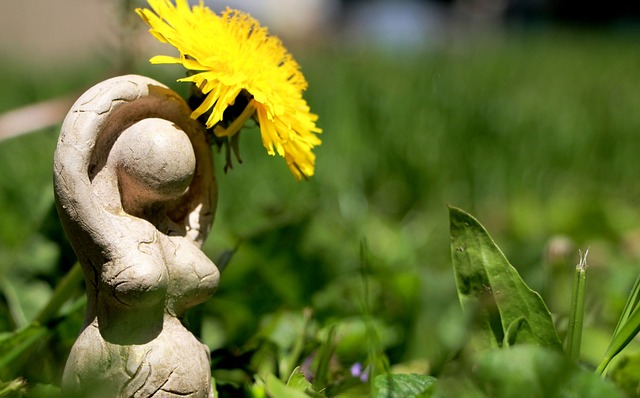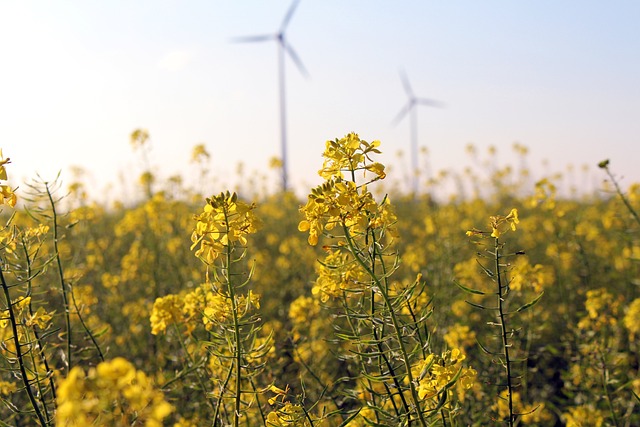Green Energy Advice That Can Help You Out

What do you using green energy benefit your life? What are there for you to be involved? This article provides several easy-to-use ideas that will provide you to make your contribution.
There are many government incentive programs you can take advantage of when it comes to green energy. Talk to your local representative to see if programs operate in your neighborhood. You may qualify to have wind or solar power installed at no cost to you. At a minimum they may allow you to deduct the charges from your taxes.
Be a better consumer of energy, and unplug electric chargers for all devices that don’t need immediate charging.Chargers used for cell phones, mp3 players, computers and others use small amounts of power any time they are in an outlet, even if they aren’t charging your device.
Become a better energy consumer, and save electricity in your home by unplugging chargers for your electronic devices when you are not using them. Charging devices for several common types of electronics, including laptops, cell phones, and MP3 players all draw “phantom power” if you keep them plugged in while they are idle.
Wash your clothes with cold water whenever possible. Almost all of the energy used to wash clothes is spent on heating up the water. If you are using good quality washing detergent, the use of cold water won’t affect the cleanliness of your clothing.
Do you have a farm? If you have one, an energy company may be interested in renting a portion of the property to install a wind turbine. Your home and the surrounding residences will get some free power. Don’t worry, wind turbines don’t take up a lot of room.
Don’t run the dishwasher if it is less than totally full. It will use the exact same amounts of water or energy even if one dish is in it.When you do run the dishwasher, be certain to always use the setting for saving energy, which air-dries your dishes.
When determining the economical impact of a PV solar system, be sure to run a calculation using the hours of winter sunlight. This prevents any unanticipated effects from a winter months, and it keeps you ahead of the game for summer months. And even more exciting, on some plans, you can receive money from utility companies if you use less energy than you generate.
When planning the solar system used in the home, try calculating what the energy generation of your system will be when you use hours worth of sun in the winter. This can prevent surprises in the winter, and it saves money during the summer.
Take time out to properly inspect your refrigerator. With the fridge being a top energy consumer in the home, maintenance is important for efficiency. Make certain to clean the dust that surrounds heating coils periodically. Also ensure that the rubber seals around the doors are clean and making tight contact.
Dressing in warm attire can help you reduce energy usage. A sweater that is light can provide 2 degrees of extra warmth, and a lighter sweater adds 2 degrees. It’s not necessary to wear so little at home, so grab a sweater to save money.
Use a green and tankless model as opposed to a tank-style water heater. Instead of keeping a whole tank of water hot at all times, tankless models only heat the water you are actually going to use. You can purchase a tankless heater for a faucet or your whole home.
Learn the differences between passive and active solar power.Passive systems simply use the sun’s energy within your home warm and well-lit.
There are active and passive options for solar energy systems. Passive power is used immediately and is cheaper, but active power has the ability to store energy for later use. You need to install solar panels and systems if you want active solar power. Passive power, instead, just stores the energy gotten from the sun inside your home.
Write a reminder to remain on top of goals for energy efficiency, and check every utility bill against the previous year’s to see if you are making gains.For example, if you actively attempted to use less water or power, you going to make the effort to turn off lights and appliances when you leave the room.
Keep up-to-date with tax rebates for making your home more energy-efficient. Sometimes, the local electric company will provide rebates to cover the cost of upgrading. In other instances, credit or tax deductions are offered by federal or state governments. Rebates and credits will help to offset the cost of implementing green energy technology you want to add to your home.
Less Energy
If you are uncertain with regard to expensive green energy updates for your home, have a heating expert or plumber provide an overview of the systems that you currently have in place. These professionals can point out inefficient appliances and systems, and they can also help you determine how much it might cost to upgrade them.
Replace your old major appliances with new ones featuring high Energy Star. Energy Star ratings mean that your new appliances are guaranteed to use less energy than those made previously. For freezers and refrigerators, the rating guarantees 20 percent less energy used, for dishwashers 40% less energy used, and for washing machines at least 50% less energy used!
Try not to turn the heat up too high in your home, unless it is absolutely necessary for you to do so. Wear sweatpants and a sweater if you are chilly. You waste a lot of energy if you put the heat on higher than necessary.
The venerable habit of turning of unnecessary lights and devices when leaving a room is still very effective. Turning off lights habitually will save a surprising amount of energy. You will also have the added benefit of saving money on your power bill.
There is a lot you can do to change your lifestyle and live in a more sustainable and environmentally friendly world. You don’t have to invest a lot of time or money; simply clean out your furnace filters and adjust your thermostat while you’re gone. Lowering the temperature on your water heater to 120 can also help reduce costs. Every small change helps!
Replace your toilet with a water-saving one. Some estimates show that up to half of all the water used in your home is flushed right down the toilet. An older model toilet uses a lot more water than a water-saving one, 5 gallons versus 1.6 gallons, saving about 70 percent on your yearly water use.
Carpooling doesn’t have to be just for work. Carpooling with other neighborhood parents to transport children back and forth to school not only saves you time, it sames you money. If you have family or friends close to you, try going to the grocery store together and taking turns driving.
Try bamboo models when you want to buy wood items. This will reduce energy used in production and recycling of manufacturing items.
Install a water-saving toilet. Estimates show that about 50% of your home’s water is used by flushing toilets. A traditional toilet uses up to 5 gallons for each flush of the toilet, but the newer models use as little at 1.6 gallons, which is a savings of 3.4 gallons with each flush.
Green tech products are a bit more pricey than conventional products, but your utility bills will be reduced. It also pay off in the future for the environment.
Consider changing out your old windows and replacing them with newer, more energy-efficient models. When you use these type of windows you can notice a significant different in things like your energy bill, less condensation right on your windows, a quieter home, and one thing that you can’t see is less carbon dioxide in your home.
Energy Star
Solar panels can be added to your home as an easy green energy source. Adding solar panels does require a significant investment amount up front, but the cost savings of using solar power over several years will more than make up for it. Once solar panels are in place the energy is free, and you might have the chance to sell some of the power to your electric company.
One simple way to recognize products and appliances that are energy efficient is to locate those with the ENERGY STAR logo. ENERGY STAR appliances meet guidelines which have been established by the U.S.Department of Energy and the EPAThese appliances are also often the only ones that can be used for tax rebates.
Do not neglect your ceiling fans during the winter. Run fans clockwise to help circulate warm air throughout the house and reduce the need to use external heaters. Yes, the fans use electricity too, but it’s much less than that used by your furnace.
Use automatic motion detection sensors on lights in the most popular rooms of your house. These sensors will turn lights on and off automatically depending on if someone’s in the room, which saves both energy and money. Remember to include the lights above the garage, as well!
You can also save money by installing a thermostat that is programmable. With their pre-programmed settings, these thermostats are capable of regulating the temperature within your home during both the winter and summer months. You can also set up your own programs to control the temperature during different times of day.
Solar panels can be used to help make your home as an easy green energy source. Although solar panels can be expensive, they will pay for themselves in just a few years. Once you’ve made the initial investment in solar panels, and with any excess power you gather you can potentially sell that to electric companies.
A great tip to help save some energy is to make sure that your fridge and freezer are in a cool location. Keeping them by heating vents or in direct sunlight raises their overall temperature, making them run longer to keep the contents cool inside.
You can seal ducts, installing energy efficient windows, and adding insulation. You will also enjoy a decreased energy bill!
Demand watch dog legislation to encourage the use of green energy by companies. Making the public aware of what non-compliant companies are doing is a powerful thing. If people knew which companies shunned green practices in favor of extra profits they might not buy from them. Companies will be more likely to use green practices if they have to maintain public responsibility.
You can save money with programmable thermostats. These types of thermostats have settings that will regulate temperatures in your home in both summer and winter months. They can also be set differently depending on whether it is day and night.
Keep your thermostat in check with the season. Lower your thermostat slightly in the winter and raise it slightly in the summer. By doing this while simultaneously adding or taking off layers will ensure you use less power while maintain a stable temperature.
If you cannot use solar energy or a green energy source to power your entire house, see if it’ll power one room. For example, you could add panels that will only heat the water in your home, or ones that specifically heat your basement.
List all of your appliances and the watts they use before talking to a professional about installing solar panels. If the contractor has accurate information about your energy usage, they will be able to give you the most accurate quote, and do so in far less time.
These devices collect real-time usage statistics and estimate what your bill will be. Research has shown that people are likely to reduce energy consumption if they see what they’re paying to run appliances and other home necessities.
Turn on your oven light to save energy while baking. When you use the oven light rather than just opening the oven to see how the food is doing you save a lot of energy because heat is not escaping.
Use rainwater for appliances like your toilet and other household items. This saves you cash on your utility bills while helping keep more clean water for drinking.
The color of your walls can help you save electricity. The darker your walls, the more energy you will have to use to brighten the room. With lighter colors in place, you will find the need for illumination is decreased. The house will have a lighter feel and look, as you save money.
Humid air will typically make your space feel warmer!Instead of putting on the air conditioner, which can use more energy and be much more expensive, let the dehumidifier run for a bit first. You might find you don’t really need the cold air conditioner.
A good energy saving tip for people who do a lot of cooking is to keep lids on your pans and pots. This will help retain the heat that you are cooking with, allowing you to lower the settings on your stove which could save a lot of energy over time.
Turn off lights when you don’t need them. For instance, keep your usage of lights only to night time, turn them off. Don’t keep porch and cabinet lighting when not in use. This simple step will reduce the amount of energy usage.
Think about using a shower head that’s water saving in your bathroom. You will save a lot of water, but you will feel the same in the shower. You’ll not only have lower water bills, but you will also help the environment by saving water.
A lot of people have thought about converting to green energy, but not many of them really spend time to learn what to do to incorporate it into their lifestyle. This article should have provided you with several great ideas that you can use to get started. Before you know it, your home can be very green, and you could be saving a significant amount of money.


